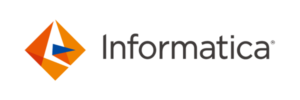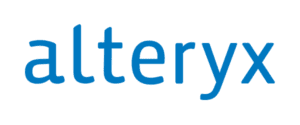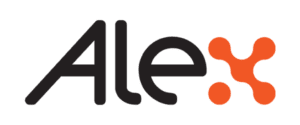Data catalog solutions helps organizations create a detailed and organized inventory of their data asset to allow data practitioners and business users to quickly find the information they need. Data catalog software leverages metadata, data management and search capabilities to improve data quality, governance and usage.
There are about 2.5 quintillion bytes of data created daily. Data-driven organizations use data for several purposes, including customer surveys, decision-making, and predictive analytics. As the amount of data grows rapidly, organizations need an effective way to manage and assess this data – which makes data catalog software highly important.
We analyzed the seven best data catalog solutions, including their standout features, pricing, plus their pros and cons, to help you determine the best solution for your enterprise.
Jump to:
- Data Catalog Companies: Comparison Chart
- Best Data Catalog Companies
- Alation Data Catalog
- Alteryx Connect
- Coginiti
- Alex Augmented Data Catalog
- Collibra
- Data.world
- Additional Leading Choices
- 5 Key Features of Data Catalog Software
- Benefits of Data Catalog Software
- Selecting the Best Data Catalog Software
- Bottom Line: Data Catalog Software
Also see: Top Data Visualization Tools
Data Catalog Companies: Comparison Table
Here is a head-to-head comparison of the top data catalog companies to help you determine the best option for your organization’s needs.
| Best for | Business glossary | Search capabilities | Data lineage functions | Metadata management | Starting price | |
| Alation Data Catalog | Best overall | Yes | Yes | Yes | Yes | Custom quotes |
| Informatica Enterprise Data Catalog | Data discovery | Yes | Yes | Yes | Yes | Custom quotes |
| Alteryx Connect | Advanced analytics | Yes | Yes | Yes | Limited | Custom quotes |
| Coginiti | SQL analyst and teams | Yes | Yes | Yes | Yes | $189 per user per year |
| Alex Augmented Data Catalog | Automation with machine learning | Yes | Yes | Yes | Yes | Custom quotes |
| Collibra | Data intelligence | Yes | Yes | Yes | Yes | Custom quotes |
| Data.world | Knowledge graphs | Yes | Yes | Yes | Yes | $12 per month |
Best Data Catalog Software
Data catalog software offers a centralized repository for data assets such as databases, tables, schemas, and files. They provide a searchable, organized, and easily accessible data view. The best data catalog solutions on the market includes:
Alation Data Catalog
Founded in 2012, Alation helps organizations make sense of their data by providing a centralized platform for data discovery, governance, and collaboration.
Alation’s platform uses machine learning, artificial intelligence, automation and natural language processing algorithms to catalog an organization’s data assets, making it easy for data analysts and business users to find the data they need for their work.
Pricing
Contact the Alation team for custom quotes.
Standout features
- Search and discovery capability.
- The tool offers visualized data representation.
- Alation guided-navigation capability enables users to find the data they need quickly.
- Active governance.
- Metadata management.
- Data lineage.
- Business glossary.
- Behavioral analysis engine (BAE) to drive pattern recognition
Pros
- Excellent support team
- Natural language search capability
- Alation offers a configurable interface for business users
Cons
- As per users report, Alation is pricey
- Steep learning curve
For more information, also see: Best Data Analytics Tools
Informatica Enterprise Data Catalog
Informatica Enterprise Data Catalog (EDC) is an AI-powered data cataloging and discovery tool. EDC enables organizations to find, understand and prepare their data with intelligent data cataloging and metadata management, both on-premises and in the cloud.
Informatica Enterprise Data Catalog provides google-like semantic search capabilities that enable users to search for data assets and offer dynamic facets to filter search results, allowing the users to narrow down the search results based on various attributes.
Pricing
Informatica uses its Informatica Processing Unit (IPU) pricing strategy to determine your cost. This lets you buy capacity on an IPU or Flex IPU consumption model. To get your actual rate, contact the company’s sales representative.
Standout features
- Informatica automatically scans cloud data stores, BI tools, ETL and third-party data catalogs.
- Supported databases/data warehouses include Oracle, MS SQL Server, SQL Scripts, Sybase ASE, IBM Netezza, Teradata, JDBC, SAP HANA, SAP BW, SAP BW/4HANA, Snowflake, and Stored Procedures.
- Data lineage and impact analysis.
- The tool enables users to curate and prepare their data with automated domain discovery, data similarity, associations and recommendations.
- Automate end-to-end data lineage.
- Automatic association of business glossary terms.
- Data asset analytics to boost analytics.
- Users can collaborate on data intelligence.
- Semantic search with intelligent facets allows users to use advanced keyword search with token matching to find data assets.
Pros
- The tool enables data consumers to search and find data using natural language.
- Self-service data provisioning.
- With Informatica, EDC users can gain visibility into data usage, share best practices, and estimate asset value.
- Users praise Informatica’s metadata management capability.
Cons
- Steep learning curve
- Data lineage capability could be improved
Alteryx Connect
Alteryx data catalog tool is available through its Alteryx Connect product. It combines its data catalog with advanced analytics to enable analysts, data engineers and business users to find, manage, understand, and collaborate across their organization’s data assets.
The tool also integrates with other Alteryx products, such as Alteryx Designer and Alteryx Server, allowing for a seamless data analytics workflow.
Pricing
Alteryx doesn’t advertise product prices on its website. Contact their sales team for a custom quote. The vendor also offers a 30-day free trial.
Standout features
- Supported data sources include Alteryx analytic apps, Alteryx database (YXDB), Alteryx workflows, Amazon Redshift databases, Azure Data Lake Store, CSV, EXASOL, Hadoop HDFS, SAP HANA, Snowflake, Tableau Server and more.
- Asset catalog – for easy data access and management.
- Business glossary – define your business terms and link them to assets in the catalog.
- Data discovery capability.
- Data enrichment and insights.
Pros
- The tool integrates with other Alteryx products like Alteryx Designer and Alteryx Server.
- Alteryx allows you to integrate with over 80 data sources.
Cons
- There’s a learning curve for non-technical users.
- The tool may be expensive for small businesses.
To learn more, also see: Top Business Intelligence Software
Coginiti
Coginity (formerly, Aginity) offers an analytics cataloging platform to help organizations organize and manage their data. The platform’s SQL friendliness makes capturing, cataloging, and sharing data analytics easy. Coginity also allows users to quickly find, access, and share their analytics assets and collaborate with their colleagues.
With its data cataloging, users can connect to different sources, build models, and clean and transform data.
Pricing
Coginiti has three pricing plans. They include:
- Coginiti Pro: $189 per user per year.
- Coginiti Premium: Request custom quotes.
- Coginiti Enterprise: Contact sales for custom quotes.
Standout features
- Enterprise directory integration.
- Supported deployment includes Windows or macOS desktops, web, and cloud deployment.
- Coginiti allows users to search full SQL history.
- Reference catalog objects.
- Governance and curation.
Pros
- Support role-based sharing (includes co-owner, editor, or view-only permissions).
- The platform manages data across hybrid and multi-cloud database systems.
- Easy connection with the database.
Cons
- Users reported that the product license cost is high.
Alex Augmented Data Catalog
Alex Augmented Data Catalog from Alex Solutions is an AI-powered data cataloging and metadata management tool that helps companies catalog, manage, and govern their data assets. It uses artificial intelligence (AI) to classify, enrich automatically, and catalog data from multiple sources, including databases, cloud storage, and files.
Pricing
Contact their sales team for a custom quote. You can request a demo to understand the tool’s capability better.
Standout features
- Alex Solutions metadata sources include Snowflake, SAP, Hadoop, Teradata, Power BI and more.
- The tool has over 90 intelligent data connectors.
- Business glossary capability
- Includes data lineage, data security, and data quality capability.
Pros
- Excellent data lineage capability.
- Natural language search feature.
- Built-in automation capability.
- Friendly user interface.
Cons
- Steep learning curve.
- The software collaboration capability can be improved.
Collibra
Collibra provides data stewards, data scientists, data engineers, and data privacy managers with the necessary tools to collaborate and ensure the accuracy of their data while gaining insight into its usage and lineage.
This cloud-based data governance and catalog platform enables organizations to discover, understand and trust their data while managing its governance and compliance. Collibra provides visual re-discovery of data, enabling users to quickly find the data they need and understand its relationships, usage, and lineage.
Pricing
Contact Collibra’s sales team for quotes. A 20-day free trial is available, and you can also request a product demo.
Standout features
- Embedded data governance and privacy.
- ML-powered classification and automated workflows.
- Collibra’s data marketplace provides insight into your organization’s new data, reports, metrics and models to boost team collaboration.
- Collibra provides data governance capabilities to ensure data quality, security, and compliance.
Pros
- Collibra’s data intelligence capability is highly rated
- Self-service capabilities.
Cons
- The user interface can be improved.
- Customer support could be better.
For more information, also see: Top Data Mining Tools
Data.world
Data.world is a purpose-built cloud-native SaaS data catalog platform that provides knowledge graphs to enhance data discovery, governance, and analytics. The tool gathers data from diverse sources and allows users to share, store, analyze, and visualize data sets.
Data.world enables data producers and data consumers to collaborate in real-time to create meaningful insights, eliminate knowledge gaps, and drive innovation.
Pricing
Unlike other vendors on our list, Data.world advertises some of its product prices on its page.
Community plan
- Community: Free
- Professional: $12 per month
Pricing for the enterprise plans (essentials, standard, enterprise and enterprise plus) are available on request.
Standard features
- Data.world integrates with various tools, including Snowflake, Oracle Database, Postgres SQL, Databricks, dremio and more
- Agile data governance
- Federated query and virtualization capability
Pros
- Noteworthy search and discovery capability
- Users reported that the tool is user-friendly for those familiar with database concepts and SQL
- Transparent pricing plans
Cons
- Steep learning curve for beginners.
For more information, also see: Data Mining Techniques
Additional Leading Choices
Aside from the seven tools above, other noteworthy solutions are worth considering when shopping for the best data catalog software:
- Erwin
- Google Cloud Data Catalog
- Apache Atlas
- IBM Watson Knowledge Catalog
- Qlik Data Catalog and Lineage
- Tableau
- AWS Glue
5 Key Features of Data Catalog Software
Metadata Management
Data catalog software provides a centralized repository to manage an organization’s metadata. It includes information about different datasets’ attributes, such as their titles, descriptions, and source, and information about the users who created them and who can access them. Metadata management helps organizations keep track of their data, allowing them to search for and find datasets when needed quickly.
Data Discovery and Search
Data discovery involves collecting and evaluating data from disparate sources and is often used to gain insight and understand trends and patterns in the data. Data catalog software provides a searchable and organized view of an organization’s data assets. Users can search for data assets by name, keyword, tag, or other attributes. The software also visually represents data relationships, making understanding the connections between different data assets easier.
Collaboration and Governance
Data catalog software enables collaboration between different teams and stakeholders within an organization. Users can share data assets, comments, and feedback, ensuring everyone can access the latest and most accurate data. The software also helps organizations enforce data governance policies by providing visibility and control over data assets. Administrators can define policies and rules for data access, sharing, and usage, ensuring that data is used securely and competently.
Data Taxonomy
Data catalogs also use data taxonomy, which is the practice of categorizing data based on its attributes. Data taxonomy can be done manually, using tags and categories, or it can be done automatically using a structured data model. This feature allows users to find data and identify relationships between different datasets quickly.
Data Lineage and Impact Analysis
Data catalog software provides a detailed view of data lineage, which is the history of the data from its creation to its current state. It also includes impact analysis, which helps users understand the potential impact of changes to data assets on downstream systems and processes. This information is essential for organizations to manage data quality and ensure that changes to data assets are controlled and responsible.
Also see: Three Steps to Enabling Better Use of Business Data
Benefits of Data Catalog Software
- Improved data governance: A data catalog software enables data owners to control data access and maintain accurate data usage records. This ensures that data is used per company policies and regulations.
- Data quality: It can detect and flag any errors, duplicates, and other problems with the data. This helps to ensure that the data is accurate and reliable.
- Enhanced collaboration: Data catalog provides a centralized platform where team members can access and share data. This increases productivity and helps teams to make faster decisions.
- Increased efficiency: Data catalog software can help organizations to save time and money by streamlining data-related processes. It can automate data management tasks, such as classification and enrichment. This helps to free up resources and increase efficiency.
- Improved data analysis: Data catalog software helps organizations analyze and visualize data better. It can help to uncover new insights and trends in data sets. This can help organizations to make more informed decisions.
Selecting the Best Data Catalog Software
The best way to choose the right data catalog software for your business is to consider your current and future needs. Start by evaluating the types of data you have and the processes you use to manage and store that data. Then, look for software that offers features that will help streamline those processes. Consider features such as automated data classification, data discovery, lineage mapping, and data governance.
Additionally, look for software with a robust security framework, scalability, and integrations with other business systems such as analytics, data warehouses, and visualization tools. You can find the data catalog software that best fits your business by carefully assessing your needs and researching available options.
Bottom Line: Data Catalog Software
In a business landscape increasingly run by data analytics, data catalog software plays a central role by enabling companies to create a highly organized inventory of all of their data repositories. At the core of this inventory is metadata, which data catalog is particularly well suited to manage.
The data catalog solutions in this list are leaders because they offer strong data discovery and search, clear data lineage and transparent data taxonomy. As the amount of data grows rapidly, organizations need an effective way to manage and assess this data – which means that data catalog software will grow in importance in the years ahead.







